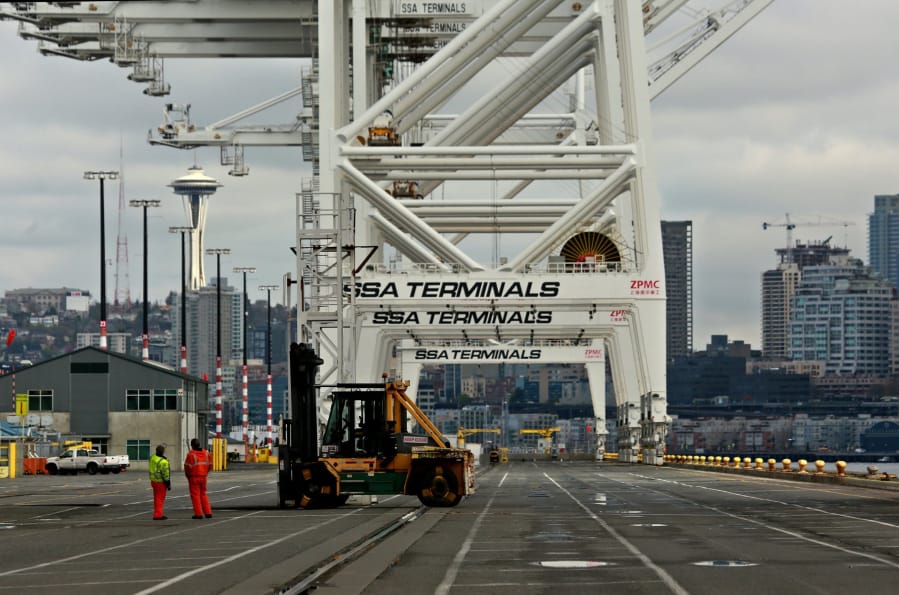As “pop ups” go, the one coming to the Port of Seattle is pure pandemic.
Beginning Friday, the U.S. Department of Agriculture is offering $200 to $400 bounties for containers packed with agricultural goods delivered to a 49-acre pop-up site near the Seattle shipping terminals.
It’s a small part of the response to what has become a sprawling, pandemic-driven problem. Shipping containers are in demand by Asian manufactures looking to ship to product-hungry Americans, so much so that they’re being shipped back to Asia empty. American farmers, meanwhile, can’t get container space they need to reach Asian markets.
“When these containers leave our ports without product, we’re basically put in a position where we cannot meet the export demand for our products that is out there,” said Secretary of Agriculture Tom Vilsack in an interview Thursday. “It jeopardized our ability to maintain market share in Asian markets.”



